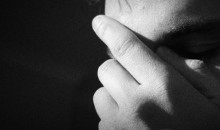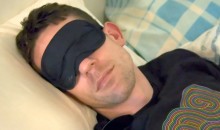Insomnia is defined as the difficulty of falling and or staying asleep throughout the night. If the problem lasts for more than three weeks, it is no longer a simple sleep problem. It is insomnia. The lack of quality sleep can affect a person’s daily functioning. It may cause several incapacitating problems.
There are some ways of remedies which are deemed helpful to get good quality sleep. These have been proven to help deal with stress, tension and anxiety which all contribute to insomnia. Some of these remedies may work, some may not. Pick whatever works for you and keep doing them.
- Warm bath– a good warm bath will relax your body, soothe and calm your nerves which could set the mood for a good sleep.
- Massage– a good rubbing or soft massage before dozing off will enhance relaxing mood and make way for sleeping.
- Set the music for sleeping. Soft, calming music will get you to relax and eventually doze off. Any type of music that soothes your mind and body will work wonders in getting you to sleep.
- Warm glass of milk before bedtime – It can be milk or hot camomile or anise tea. They have natural sleep-enhancing ingredients. The calcium content of milk works directly on nerves to relax them.
- No caffeine, alcohol or cigarette. Coffee, tea, chocolate and cola drinks should not be taken near bedtime. Alcohol and cigarette disrupt sleep and should be avoided.
- Right room temperature – this should give the best sleeping condition. Not a too cold or too hot room.
- Sleep on a firm bed – this will give your body comfortable support which will prevent sleep disruption.
- Sleep on your right side or back– this is the best relaxing sleeping position. Do not sleep on your stomach as it will cause pressure on all the internal organs which can cause shallow breathing and other health problems.
- Exercise for half an hour before bedtime – the physical activity will cause the body to slow down a bit, enough to condition the body for a good sleep.
- Keep regular bedtime– making your body adjust to changing sleeping time will cause confusion to your body clock. Always keep a regular and fixed bedtime.
- Get up if you can’t sleep. There’s no point lying awake if you awaken from sleep and you can’t go back to sleeping again. Get up and quietly do something to keep your mind busy and diverted from thinking of getting sleep when you cannot.
- Keep a regular waking up time. Regardless if it’s weekend or holiday, wake up at the same time every single day. Don’t spend longer time lying on bed once you have awakened.
- Keep the bed for sleeping. Avoid doing your reading, crossword puzzles or hand-held video gaming on the bed. They tend to tell the brain that the bed is not for sleeping.
- Don’t nap. For people with normal sleeping habits, nap is good. Not for people with insomnia. Not having naps during the day will make your body feel tired as the day comes to an end, thus, forcing your brain to send signals for sleeping.
- Keep your room dark. Don’t use illuminated wall clock as this will not help you get sleep if you have awakened in the middle of the night.
Insomnia is not a disorder and there are certain lifestyle changes which can help relieve the sleeping difficulty. Sleep aids like beddings, mattress, pillows and sound machines can also induce the mood for sleeping. In severe cases, sleep medication is advised. Some sleep medication drugs include sleeping pills, non-prescription sleep aids, OTC antihistamines and antidepressants. The use of medication should be monitored by your doctor to avoid any complication or risk of addiction.











